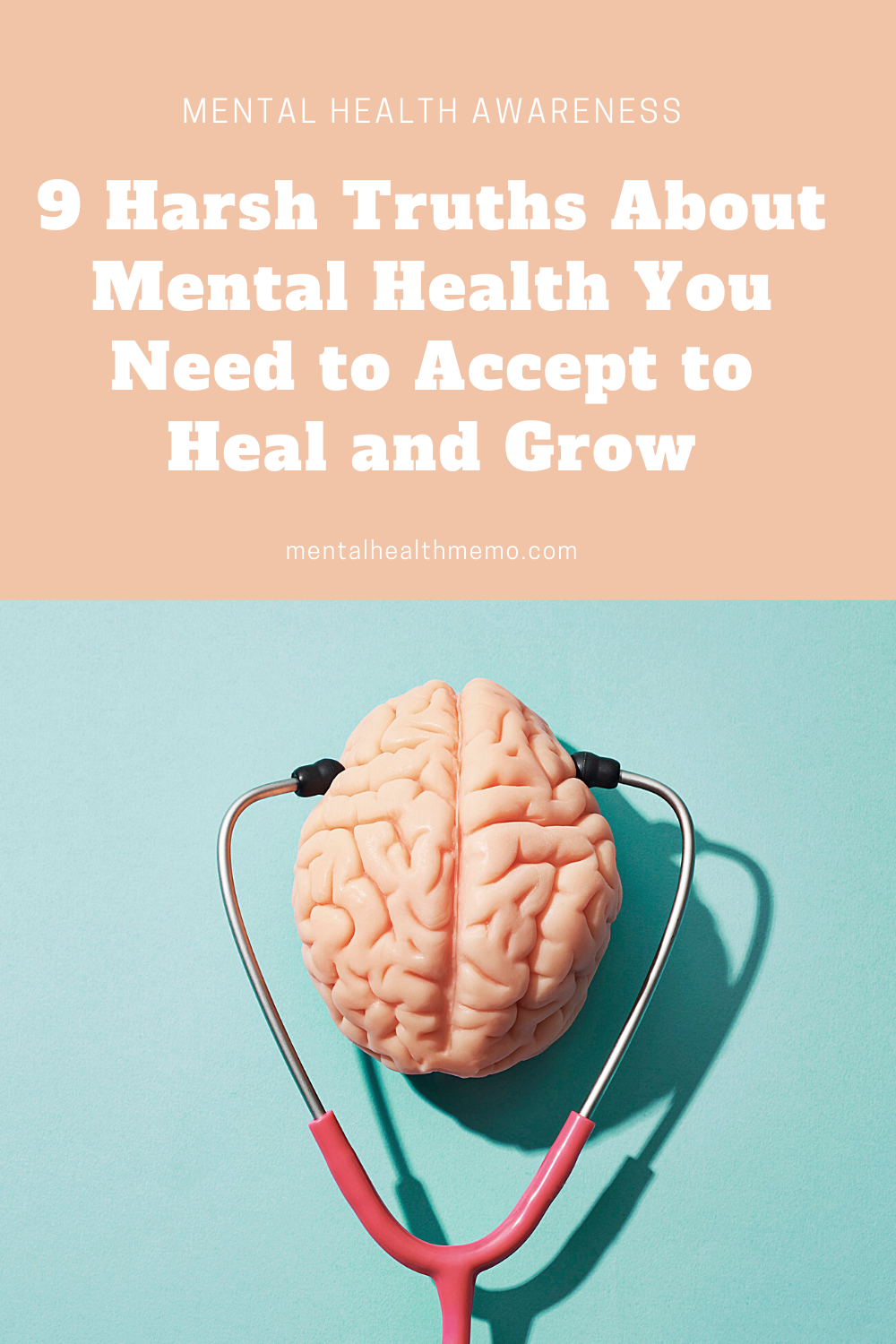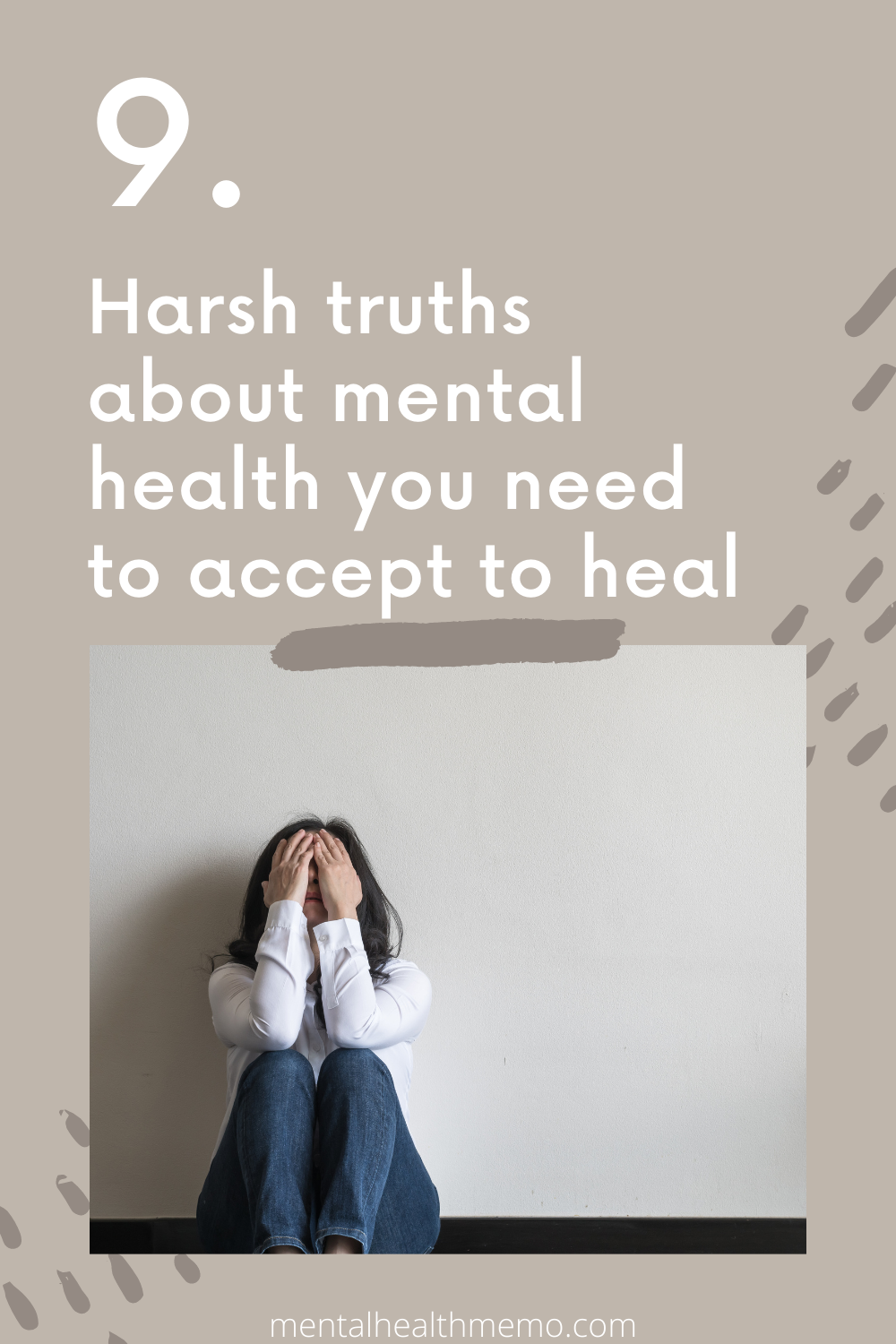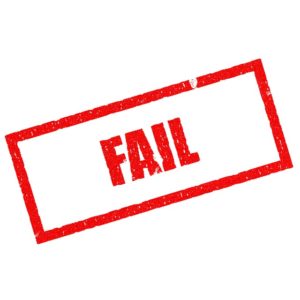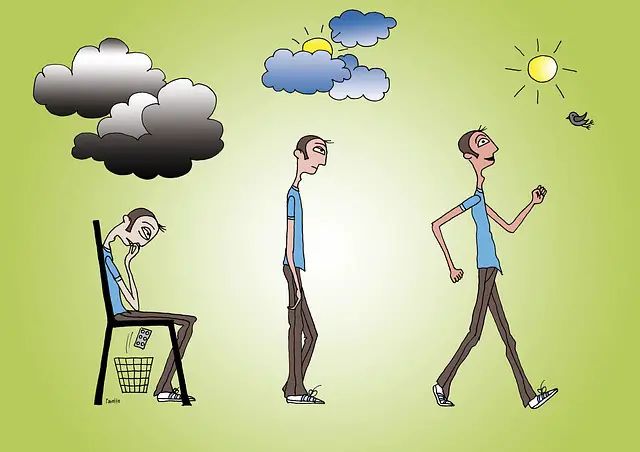Precursor
The mental health memo of the day is: accepting harsh truths about mental health won’t make you jaded, but rather help you to reframe your reality so that you don’t have unrealistic expectations that will inevitably hurt you or those around you
Alternative memo of the day: as our lord and savior Lizzo once honorably and gracefully said- “truth hurts”
As a refresher, I’ve been dealing with mental health issues since the exciting age of 7. Throughout my years of living with mental illness, I’ve come across a lot of different approaches to coping with poor mental health.
One of those is an unrealistic and unhelpful “always-be-positive approach”. This outlook suggests we always stay positive and optimistic about everything that happens in life.
And you definitely know the people that preach this. “Look on the bright side!”, “You could have it a lot worse”, “At least…”, “Let’s focus on the positive instead” are just some of the common phrases these individuals say.
Now, don’t get me wrong, positivity is important. However, this type of positivity is toxic because it attempts to paint over difficult emotions and pain with a bright neon yellow that says “BE POSITIVE!!!!”. It’s unrealistic and if you keep trying to force yourself to be positive, you’ll actually end up becoming more burned out.
All emotions are valid, important, and needed for a life of quality. This includes the bad ones.
So alternatively, I believe in practicing realistic positivity. I already wrote an extensive post about it which you can check out here if you’re interested in how to practice it.
But essentially, to be realistically positive means to accept the reality of a situation and work with it in a way that is curious, gentle, and optimistic. This is what we’re going to be doing today with our topic of truths about mental health.
We are going to do this by sitting with these truths about mental health and instead of fighting them or pretending they don’t exist, we’re going to accept them and work with them. We are going to look at them and ourselves with curious compassion and reflection, and then find a way to sit with these truths and figure out ways of coping.
I really want to emphasize that this isn’t to say we should let these harsh realities about mental health control us and make us feel hopeless. But rather, accepting them and working alongside them is going to be much more beneficial than pretending they don’t exist or fighting them.
I’ve learned these harsh truths about mental health the hard way, and I’ve found that once I stopped trying to fight them and instead befriended them, life became a lot easier.

Mental Health Truth #1: It’s always going to be part of you and you’re always going to have to work on it
This one honestly still gives me the occasional existential crisis y’all.
Unless you have an acute mental illness (meaning it’s short-term and not chronic), your mental illness is always going to be a part of your life. And what that means is that you’ll likely always be experiencing some form of symptoms no matter how mild or severe.
I think this one was really hard for me to grasp because I was so young when I was diagnosed, that I simply couldn’t and didn’t want to imagine being 70 years old with the same type of anxiety and distress I was having in my adolescence.
The idea that I’ll be living my life like this forever sometimes feels too powerful and overwhelming of a thought.
But the fact is that, unless some miracle happens, I’ll be like this for my whole life. So why stress myself out even more about it when I can just continue on with my life to the best of my ability?
The mindset that I try to keep to help me with this is: right now despite all the difficulties I’m facing I’m continuing to cope and live my life, and I’ll continue doing that in the future. Yes, it’s difficult but if I’m able to cope now I can cope in the future, even if symptoms worsen.
Getting wound up in the frustration of having chronic mental health issues isn’t actually going to solve anything. It’s just going to make you feel angry, depressed, and hopeless. So let yourself feel that pain for as long as you need, and then accept it, and start creating strategies for living with mental health issues for the long run.
It’s also comforting to know that other people are in this same boat. And not just for mental illnesses but for physical illnesses too.
For example, I’m sure a person with something like Celiac disease would have likely had this dilemma too of “Oh my god I’m stuck with this for my whole life”. And it’s such a terrifying thought, yet we can strive to find comfort in each other’s stories and take refuge in the idea that we’re not alone.
By doing that, and also accepting the reality and working with it, we can combat this and continue not to just cope with mental health issues but thrive alongside them.
Mental Health Truth #2: Medication won’t fix you
Since the boom of Psychopharmacology, medication has become a staple in mental health recovery plans. And it makes sense since at first all the was available was talk therapy which didn’t work for many people. There were also some incredible results with drugs such as the anti-psychotic Chlorpromazine and the anti-depressant Prozac.
However, medication is not perfect. Everyone’s body is different and reacts in a unique way to drugs. On top of that, the fields of Psychopharmacology and Psychoneurology are still fresh and do not fully understand everything about how our brains act and react, especially to medication.
For a long time, I didn’t want to take any medication for my mental illnesses because I was scared of the side effects and potential damage I could be doing to my health.
But after a few years of no medication and a new wave of bad anxiety, I decided to try it. Boy, did I have some HUGE expectations.
Both doctors and people I know have boasted about amazing results with mental health medication, so I was really reaching for the stars with what I expected to happen. Needless to say, I was severely let down.
I thought that the medication would cure me and I’d never feel even an ounce of anxiety or depression ever again. That was far from the reality.
I tried out a lot of different medications, and while some certainly helped to alleviate my mood symptoms, nothing really helped my anxiety.
The pills also made me lose and gain weight too much and even gave me lots of nasty physical symptoms like waking up at 3 am for no reason every night. So I decided to stop them.
The whole point of this story is to say that medication is not necessarily your answer/miracle/cure.
As my doctor and Social Worker said, medication is there to simply drown out the noise in your head a little bit (or a lot a bit). But it won’t cure you.
That doesn’t mean don’t take medication if it helps you. In fact, medication can be essential and can be the difference between being able to function and participate in the world and complete dysfunction. Medication is 100000% an option to consider for your mental health recovery and there is absolutely nothing wrong with taking it.
What I’m trying to get at here is that medication is a TOOL for better mental health, not necessarily a MIRACLE CURE for the average person.

Mental Health Truth #3: Nobody can save you but yourself
This might be a bit cliché but quite frankly it’s the truth.
Nobody can do the difficult and draining cognitive work for you, or take your medication for you, or simply live out your mental illness for you. You have to do it yourself.
This can be really difficult to accept because coping with poor mental health is difficult and as humans, we seek refuge, support, and comfort in others. And while of course a support system is essential, there is a difference between being supported, guided, comforted, or mentored and simply throwing your problems onto others to fix and deal with.
The way that I cope with this is that instead of looking at managing my mental health alone like it’s a bad thing, I look at it as a good thing.
Doing it all by myself is empowering and makes me feel like a stronger person. If someone else were to save us, the reward wouldn’t be as gratifying.
Not only that but if we depend on others to solve our problems, if these people disappear then we won’t be able to cope or continue to prosper.
Take the initiative to work on yourself for yourself by yourself. Otherwise, you’ll never get better.
Mental Health Truth #4:You can’t blame your mental illness for everything
BEFORE EVERYONE GETS TRIGGERED HEAR ME OUT!
I’ve often come across these conversations:
“I know I always damper your mood but it’s just because I’m depressed”
“I know I said some hurtful things to you but it’s just because I have a personality disorder and it can make me mean”
“I know I canceled for the 10th time 5 minutes before the event but it’s because I was too anxious”
Now, don’t get me wrong. I think our mental illnesses can certainly make us act, react, or be certain ways. I don’t think these are just excuses nor do I think there’s anything wrong with being honest with others and saying that your mental illness made you do something.
HOWEVER, I do think there comes a moment where you have to take responsibility for your actions and for how these actions affect others.
You cannot hide behind your mental illness all the time and use it as something to get you out of things with no consequences. This is taking advantage of others and manipulating them with guilt to make them feel like they cannot be upset with you just because you have a mental illness.
For example, my anxiety can often make me unable to attend or do certain things. That doesn’t mean that should give me the green card to bail on plans whenever I want just because I have an anxiety disorder.
If I ever feel like I’m too anxious to do something I either don’t agree to the plan to begin with, or I give a huge heads up that I won’t be attending anymore and that I’m sorry and will compensate for it.
Alternatively, I’ve seen people cancel 30 minutes before something with the excuse of “I’m too anxious and I can’t come any more”. No apologies, no heads up, nothing.
Now I think these situations are okay if they happen once in a while. But when this is regular for how you treat others, it isn’t acceptable. You’re wasting other people’s time and it’s rude. And it makes the rest of us look bad too.
If you often have to do this because of your mental illness, I’m not trying to make you feel bad. But I do think there are ways to compensate or to show that you’re trying your best to stop/prevent what you’re doing because at the end of the day hurting others isn’t excusable just because you have a mental illness.
So please do not take this as an attack. I know many of us drown in guilt when we have to cancel on people or hurt people because of our mental illnesses. Trust me, I completely get it. I also get how a lot of times people already see mental health as an “excuse” rather than a legitimate reason for something not being possible. However, I also know the flip side of that where people use their condition as a way to do whatever they want without consequences. So it’s important to notice all of these angles and issues and work on them as a community.

Mental Health Truth #5: There’s no magic cure
I already mentioned that medication won’t fix you, but I wanted to make an ever broader point.
In general, there’s no magic cure for anything really. No therapy, no medication, no relationship, no book.
But we can combine all of those incredible things and apply them to our lives so that we can strive for the best life possible.
For example, I went through exposure therapy and it drastically improved my life. But it didn’t cure me.
I still have panic attacks and I still get anxious going far away from home. But now I can cope with it better, and I can make the situation easier for myself.
So take all the things that help you feel better and use them to make life easier, but know they can’t cure you. (Of course however there are exceptions for this and every other point in this post).
So try your best to keep your expectations in check.
Mental Health Truth #6: It affects those around you
I briefly just touched on this but our mental illnesses affect those around us. Our anxieties, moods, outbursts, psychosis, and everything else takes its toll on people.
It’s not something to feel bad about because it isn’t in our control a lot of the time, but it’s something you need to acknowledge and compensate for. So it’s important to check up on and be good to our loved ones and those that support us.
And like I said, take responsibility for your actions even when they stem from your mental illness. Apologize when needed and try to be proactive if you know you might bail or if you’re in some type of mood.
Mental illnesses affect everyone, not just those experiencing it. So let’s be good to those that love us and help us, just as they’re good to us.

Mental Health Truth #7: There is no shame in being mentally ill, but that won’t stop prejudice
This is a hard pill to swallow because we don’t really have any control over it.
While we’re getting more progressive with the topic of mental health and mental illnesses, there is much to be done.
And unfortunately, there is still going to prejudice out there. So yes, maybe someone leaves you because of your mental illness. Or maybe you get fired because of it. Maybe your mom tells you to just “get over it” and stop being childish.
But don’t let that make you feel like you should be ashamed. It’s okay to be the way you are. There is no shame in being mentally ill. The shame lies in those that are ignorant about the issue.
But just know that there will still be prejudices out there, and be prepared for them.
You can do this by practicing self-care, self-compassion, mindfulness, exercising, spending time with loved ones, receiving professional support, and much more!
When moments of prejudice and discrimination happen, make sure you have some coping systems in place to help you let go of it and feel better.
Mental Health Truth #8: You’re going to fail (and that’s okay)
Having a mental illness is really hard. You will never have it perfect despite your best efforts.
You will fail and get worse lots of times. Sometimes it’ll take you a very long time to get better again. But that’s okay. Because you’re going to get back up eventually.
Like I said in my first point, you’re stuck with this. But just like you’re coping now, you’ll cope in the future too. When something bad happens or you slip, you’ll eventually climb back up your little mental health ladder again.
Maybe you were always high functioning and then something happens and you need to take time away from school, work, or responsibilities in general. And likely that’ll feel like a failure to you.
But in the worst-case scenario, this “setback” will teach you more about yourself, your mental illness, and new ways you can cope. It can act as an opportunity to remind yourself how strong and capable you are. Because nobody has ever gone through a mental illness “perfectly” and without setbacks and failures.
In moments where I feel like I’ve taken steps back or am failing a lot, I like to reflect a little on just how far I’ve come. Sure I may have taken 3 steps back but those 3 steps back are on a journey of 300 steps forward.
And instead of looking at this journey as linear, I like to think of it as a cha-cha instead. It makes it easier to accept failure when it happens and helps me to always push for getting better.
I also happen to enjoy dancing the cha-cha so that also helps.

Mental Health Truth #9: Your mental illness will evolve and change
What your mental illness looks like today may not be what it’ll look like in a week, a month, a year, or a decade. And that’s both good news and bad news.
For example, while I still have panic disorder and my panic attacks present themselves in pretty much the same way as before, I’m not as bad as I used to be. I can be a member of society now and do things with much greater ease than before.
And maybe in 5 years, I’ll be worse than how I was when I first got diagnosed. Or maybe I’ll barely get panic attacks. Who knows! Definitely not me (if for some reason you’re psychic and you do know… hit me up).
Symptoms, severity, triggers, and everything else changes all the time.
So if you’re feeling worse than usual accept that and know it’ll change soon. If you’re feeling better than normal be grateful because that too can change.
This is not a linear journey, and it never will be. Use this both as comfort in hard times and as a reminder of gratitude in good times.
To summarize
Truth bombs hurt y’all. But they’re necessary for us to hold ourselves and others accountable. They also help us to better see reality and reframe our expectations and understandings better.
I hope this post has given you something to think about or even maybe something to work on. Remember to be kind to yourself and this process because it’s not easy and it’s ever-changing. Take it day by day, and work with these truths about mental health with a sense of ease rather than resistance or ignorance.
Let me know which one you found the most surprising in the comments below!
All my love,
T

